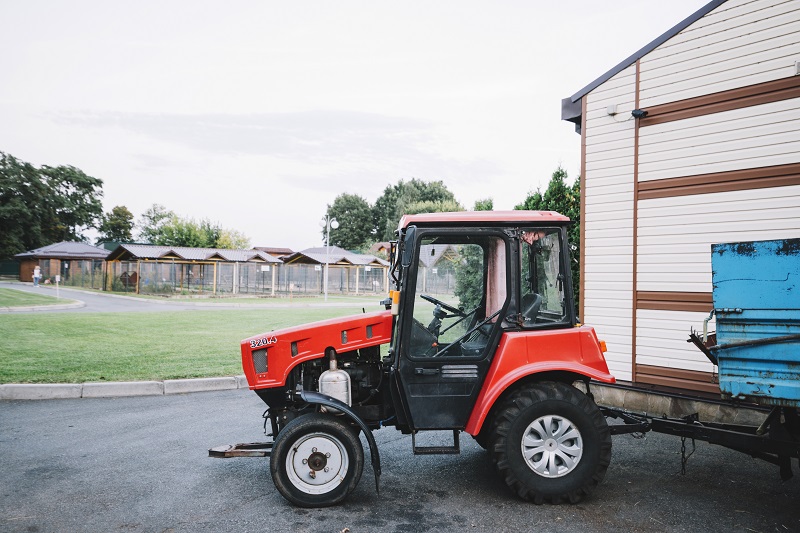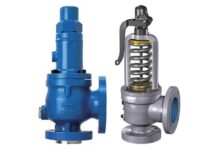Why steady care beats big repairs
Farm machines do hard work every day. Long hours, dust, heat, and bumps all try to slow them down. Good news: steady care wins. A few simple checks, done often, can keep tractors, loaders, and implements ready from the first harvest run to the last job in the yard. No fancy tools needed. Just a plan, a clean rag, and a calm look at the same spots each time.
A quick pre-start routine that actually saves time
Before the key turns, walk around the machine. Look for leaks under the engine and along the hydraulic lines. Wiggle hoses by hand. Loose clamps show up fast. Check the oil, coolant, and fuel caps are tight. Kick tyres or check track tension, not for fun, but to spot a slow leak or a stone stuck in the tread. Open the air box and tap the filter to see if dust pours out. If it does, replace it rather than hoping it lasts another day. Wipe the lights and mirrors so the next turn on the road is safer.
These two minutes can save an hour stuck in the paddock. Small problems speak up early. The trick is to listen.
Keep dust and heat under control
Engines hate hot air and clogged radiators. Blow out the radiator and intercooler fins with low-pressure air at the end of each day. Hold the nozzle at an angle so you do not bend the fins. Clean the pre-cleaner bowl and make sure the seal sits flat. In hot months, park with the nose into the wind if possible. That tiny choice helps the fan pull cooler air through the core when you start again.
Check coolant strength before the season ramps up. A cheap tester quickly shows if the mix protects against boiling and corrosion. Hoses that feel spongy or cracked should be replaced now, not mid-harvest.
Fuel, oil, and filters: simple rules that pay off
Use clean fuel from a tank that gets drained of water. If a sight bowl shows cloudy fuel or tiny bubbles, swap the filter and bleed the line. Stick to the oil grade the manual calls for. Thicker is not always better. Change oil and both filters on time, even if the machine sounds fine. Dirty oil carries grit into bearings where it quietly grinds away.
Grease points matter more than most people admit. Wipe the nipple first, pump until fresh grease shows, and stop. Over-greasing can pop seals. Under-greasing lets pins wear into odd shapes. Both cost money later.
Match the implement to the job
A heavy slasher, a deep ripper, or a loader bucket each puts stress in a different place. Make sure the hitch pins fit tight, the safety clips are in, and the PTO guard spins freely. Set hydraulic flow and pressure within the range listed for the attachment. Running an auger too fast heats the oil for no gain. Slow and steady moves more grain with less wear.
Finding local help and parts when time is short
Even the best routine needs backup. When a part number is unclear or a bracket does not match, local knowledge saves the day. Many crews in WA search for agricultural equipment perth when they need specs, service hours, or to check which attachments fit older models. A quick check before ordering stops returns and wasted trips.
Tyres, tracks, and ground contact
Tyre pressure changes with load and heat. Check it when tyres are cold. Low pressure makes sidewalls crack and raises fuel use. High pressure hurts grip and rides rough, which shakes bolts loose. If the machine runs on tracks, keep them clean after wet work. Mud dries hard and chews at idlers. Look for cuts on the guide lugs and keep tension in the band where the manual sets it. Tight tracks wear fast. Loose tracks jump.
Wheel nuts do not care about the time of day. They just need to be tight. A paint mark on the nut and hub helps spot movement at a glance.
Hydraulics: clean oil and cool temps
Hydraulic systems carry the muscle. Keep fittings clean when swapping hoses. Dirt pushed into a quick coupler goes straight to valves. If the oil turns dark or smells burnt, it is telling you it got too hot. Check for a blocked cooler or a stuck fan. A simple thermometer gun can spot a hot return line before seals start to weep.
Levers that drift or a bucket that sinks overnight often point to a seal or valve issue. Early service is cheaper than a blown hose under pressure.
Brakes, lights, and safe travel
Hard field work is only half the story. Road travel needs sharp brakes, clear lights, and steady steering. Test the brake pedal at low speed in the yard. If it feels soft or pulls to one side, fix it before loading the trailer. Clean reflectors and check the plug to the trailer lights. A cheap spare plug kept in the glove box can rescue a late run home.
Clean down, park right, and store smarter
End-of-day cleaning is not about shine. It is about heat and rot. Blow off chaff from exhausts and belts. Wash off fertilizer and wet soil from metal surfaces. Dry the machine before putting it in the shed. Leave the fuel tank full to reduce water from condensation. Unplug the battery or connect a maintainer if the machine rests for a week or more.
Hang chains and straps on a peg board where air can move around them. Store filters in sealed bags so dust does not become the first thing the engine breathes tomorrow.
Batteries and electrics without drama
A weak battery wastes time and burns starter motors. Check the resting voltage with a simple meter. Clean the posts with a wire brush and tighten the clamps. If terminals grow a white crust again and again, the battery may be venting or overcharging. Look at the alternator belt and tension. Loose belts squeal and undercharge.
Harnesses that rub on sharp edges fail sooner. Add a short length of split conduit where wires pass near metal. Zip ties are handy, but do not cinch them so tight that they cut into the sheath.
Teach the team the same simple habits
Machines often get shared. Mixed habits cause mixed results. Write a short checklist and stick it on the inside of the door: fluids, tyres, air filter, leaks, lights, grease points. Keep it to one page. Set a time—start of day or end of day—and keep it steady. When everyone follows the same plan, weak points show up faster.
Encourage slow starts. A cold engine needs a minute to settle oil through the bearings. Hydraulics flow better once the oil warms. That tiny pause adds life you can feel months later.
Keep a small rescue kit on the machine
A few items prevent long walks back to the shed. Pack a clean rag, basic spanners, a tyre plug kit, a spare air filter, a roll of tape, a few hose clamps, zip ties, gloves, and a torch. Add a small first-aid pouch and water. These are simple things, but they turn a bad fifteen minutes into a short pause and a safe finish.
Track hours and plan around the season
Hour meters help plan service. Log engine hours, filter changes, and tyre rotations in a notebook or a simple phone app. Note the job and conditions as well—hot day, sandy paddock, heavy towing. Patterns appear over time. Maybe a loader needs grease sooner during grain season. Maybe the harvester’s belt slips only when the day tops 35°C. Those notes guide the next season’s prep list.
Before the season starts, line up the consumables you will need: oil, filters, belts, blades, grease, coolant. Put them on one shelf in the shed. Label the boxes and keep a bin for used oil and old filters so disposal stays tidy.
When to stop and call in a pro
Some problems are not worth chasing in the field. If the engine light flashes and the code points to injection timing, or if a hydraulic pump whines under no load, shut down and call a technician. Pushing on can turn a small service into a major rebuild. The goal is steady work, not hero stories about limping home.
What to remember every single day
Machines last when care is normal, not rare. Do the same small checks before and after use. Keep dust and heat away from engines. Feed clean fuel and fresh oil through good filters. Match attachments to their settings, not just their size. Store gear clean and dry. Teach the team one clear routine and follow it. With those habits, the paddock jobs finish on time, and the shed stays calm. Share the checklist with anyone who hops into the cab. Ask questions when something feels off. The season runs smoother when everyone backs each other up and keeps the plan simple.








